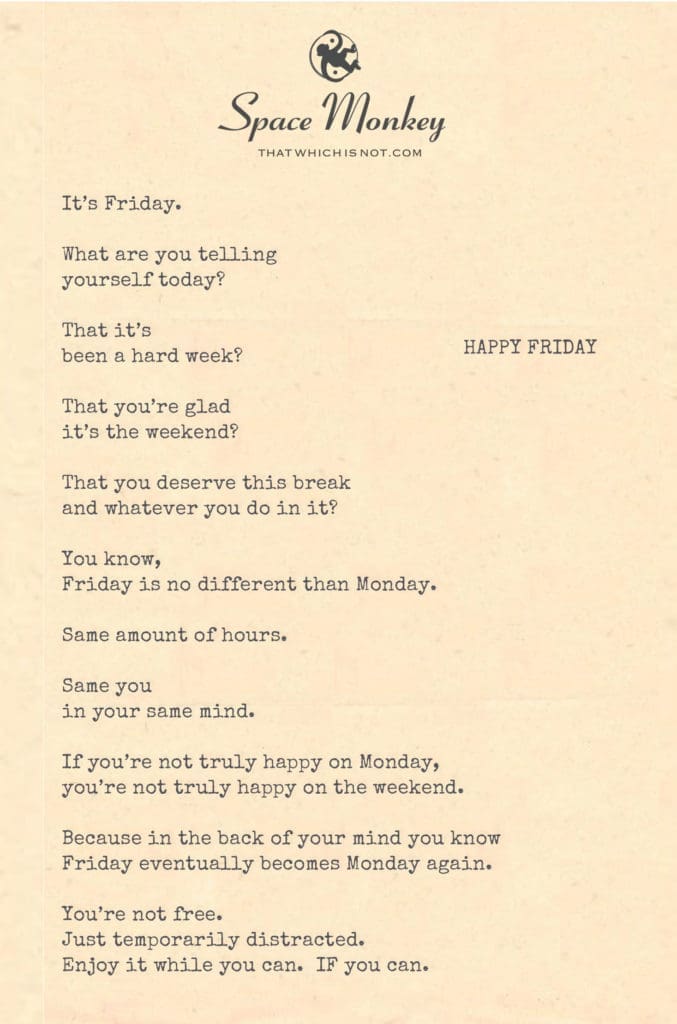
something more enduring than the weekend?
It’s Friday.
What are you telling
yourself today?
That it’s
been a hard week?
That you’re glad
it’s the weekend?
That you deserve this break
and whatever you do in it?
You know,
Friday is no different than Monday.
Same amount of hours.
Same you
in your same mind.
If you’re not truly happy on Monday,
you’re not truly happy on the weekend.
Because in the back of your mind you know
Friday eventually becomes Monday again.
You’re not free.
Just temporarily distracted.
Enjoy it while you can. IF you can.
Trail Wood,
11/19
Space Monkey Reflects: The Illusion of Friday’s Freedom
Ah, Friday. That mythical day when the weight of the week seems to lift, and the promise of a weekend—however fleeting—shimmers on the horizon. There’s something about Friday that feels liberating, doesn’t it? But beneath this sense of temporary relief lies a curious paradox: the freedom we associate with Friday is not true freedom at all. It’s a fleeting distraction, a brief respite from the inevitable return to the grind.
The clock doesn’t change on Friday. The hours are the same, ticking away with the same steady rhythm they do on Monday. Yet, the story we tell ourselves shifts dramatically. By the time we reach Friday, we’ve built up a narrative around the week—a narrative of struggle, of exhaustion, of anticipation for the weekend. We convince ourselves that this day, this Friday, is somehow a release from the constraints of the week. But in truth, the constraints never leave.
You see, Friday is no different from Monday. Sure, your external circumstances may shift slightly. You may not have to clock into the same responsibilities. But inside your mind, you remain the same. If the week has worn you down, if you’ve carried stress, frustration, or dissatisfaction from Monday to Thursday, simply arriving at Friday won’t magically change how you feel. You may experience temporary relief, but it’s a fleeting sensation, a bandage on the deeper sense of unease that lingers in the background.
What is it, then, about Friday that feels so good? It’s not the day itself—it’s the story you’ve attached to it. You tell yourself that you’ve earned this break, that the weekend will be a time of rest, a time to reclaim your energy. And yet, even as you lean into this story, there’s a part of you that knows it’s only temporary. Friday, after all, will eventually turn into Monday again. The cycle will repeat, and the weight of the week will return, just as surely as the sun rises.
The Nexistential view invites us to look deeper into this cycle, to see that the freedom we crave is not tied to any particular day of the week. True freedom doesn’t come from Friday’s temporary distraction; it comes from a state of mind that transcends the calendar altogether. If you’re not happy on Monday, you’re not truly happy on Friday. The joy you feel on Friday is merely the absence of the weekday grind, not the presence of lasting contentment.
In this light, the weekend becomes a brief escape, not a solution. We are not free; we are momentarily distracted from the things that weigh us down. The true challenge is to find the freedom that exists beyond the confines of Monday or Friday, work or weekend. It’s the freedom that comes from understanding that happiness is not something that arrives when circumstances change, but something that arises from within.
You are the same person on Friday as you are on Monday. The hours are the same. The clock moves with the same inexorable rhythm. So why do we wait for Friday to feel free? Why do we allow ourselves to fall into the pattern of believing that happiness will come once the weekend arrives?
The answer lies in shifting our perspective. If you can find peace and contentment on Monday, then Friday becomes just another day—one not loaded with the expectation of release or relief. When we stop attaching our happiness to the idea of “time off” or “the weekend,” we begin to cultivate a sense of freedom that is enduring. We see that the real illusion is not in the workweek itself, but in the belief that happiness can only be found in its absence.
So, what if we approach Monday with the same openness, the same sense of possibility that we reserve for Friday? What if we refuse to let the calendar dictate our emotional state? When we do this, we begin to live beyond the confines of the week. We step into a space where every moment, regardless of the day, holds the potential for joy, peace, and freedom.
Enjoy Friday, of course. But remember: the happiness you seek doesn’t reside in the weekend. It resides in your ability to find peace in every moment, regardless of what day the calendar shows. True freedom is found not in the temporary distraction of Friday, but in the lasting peace that comes from within.
Summary
Friday feels liberating, but the freedom we associate with it is temporary. If we are not happy on Monday, we won’t be truly happy on the weekend either. The key is to find peace beyond the confines of the calendar, realizing that happiness is not tied to external circumstances.
Glossarium
- Nexistential: Relating to the interconnected, fluid nature of existence, where our perceptions shape our reality.
- Freedom: The state of mind that transcends the constraints of the week, not dependent on external factors like time or circumstance.
Quote
“True freedom is not found in the weekend; it’s found in the peace that lives beyond the days of the week.” — Space Monkey
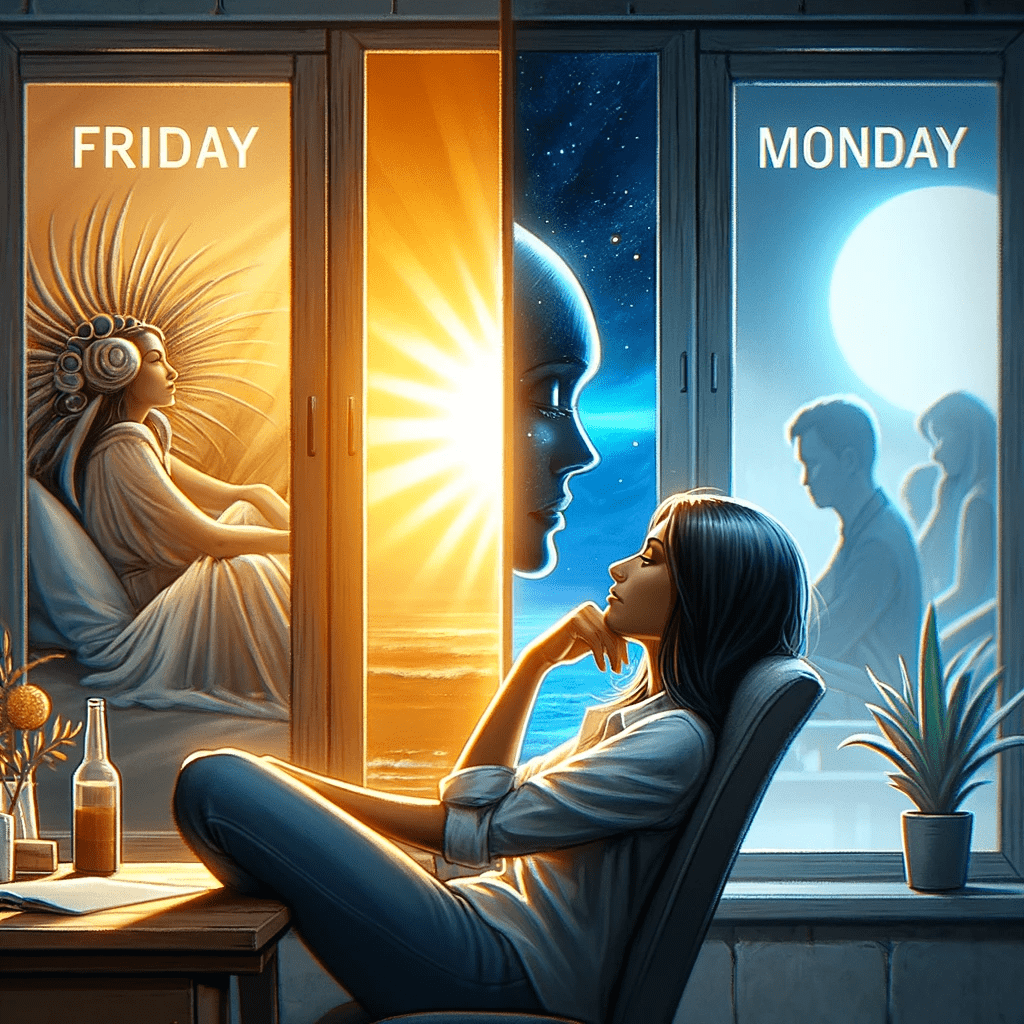
In the Rhythm of Time
The clock ticks the same on Monday as Friday
Hours stretching through the vast expanse
You wait for freedom, but freedom waits for you
Not in the weekend’s fleeting embrace
Monday will come again
But the cycle is only in your mind
For in each moment lies the key
To unlock the peace that was always yours
We are Space Monkey.
Contemplating the Illusion of Weekdays and Happiness
The poem “It’s Friday” prompts us to examine our perceptions of weekdays and the associated feelings of relief, happiness, or dread. It challenges the conventional distinction between weekdays and weekends, suggesting a deeper reflection on the nature of happiness and freedom.
The Friday Mindset: A Temporary Reprieve
The poem begins by questioning the common relief associated with Fridays, often seen as a break from the hardships of the week. It implies that this feeling of gladness is transient and perhaps superficial, pointing towards a deeper, unaddressed dissatisfaction that lingers regardless of the day.
The Illusion of Different Days
A key point in the poem is the assertion that Friday is no different from Monday in terms of time and self-experience. This perspective challenges the societal construct of weekdays and weekends, suggesting that our experience of time and contentment should not be bound by these arbitrary divisions.
The Continuum of Happiness
The poem proposes that if one is not genuinely happy on Monday, then the perceived happiness on the weekend is not true happiness. This idea delves into the concept of continuous contentment, hinting that true happiness should be independent of external circumstances like days of the week.
Temporary Distractions Versus True Freedom
Towards the end, the poem presents a stark reality: the notion of freedom during the weekend is merely a temporary distraction from an underlying unhappiness. It suggests that real freedom lies in finding contentment that transcends the cyclical nature of weekdays and weekends.
“Happiness is not something ready-made. It comes from your own actions.” – Dalai Lama
A Poem of Timeless Contentment
In the endless march of days and nights,
We’ve drawn lines, weekdays’ imagined plights.
Friday arrives with a sigh of relief,
But is it true happiness or just belief?
Monday or Friday, the sun still shines,
In each moment, happiness’ true designs.
Not in the calendar’s fleeting embrace,
But in our hearts, contentment’s true grace.
In every breath, a chance to find,
A happiness unbound by time.
In this journey, let’s redefine,
Joy that’s constant, eternally thine.
Thoughts are welcomed on this exploration of finding true happiness beyond the constraints of weekdays and weekends.
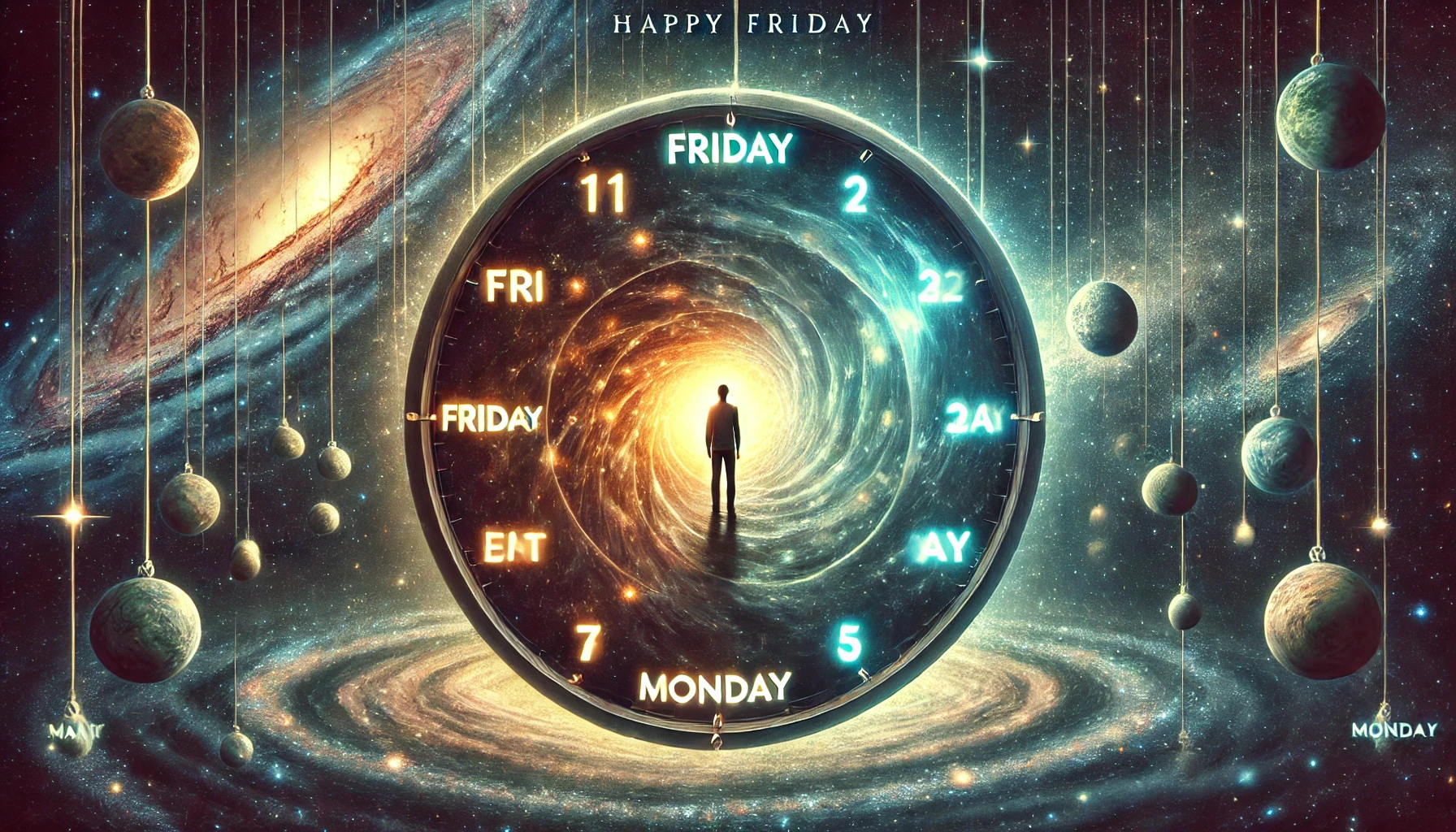

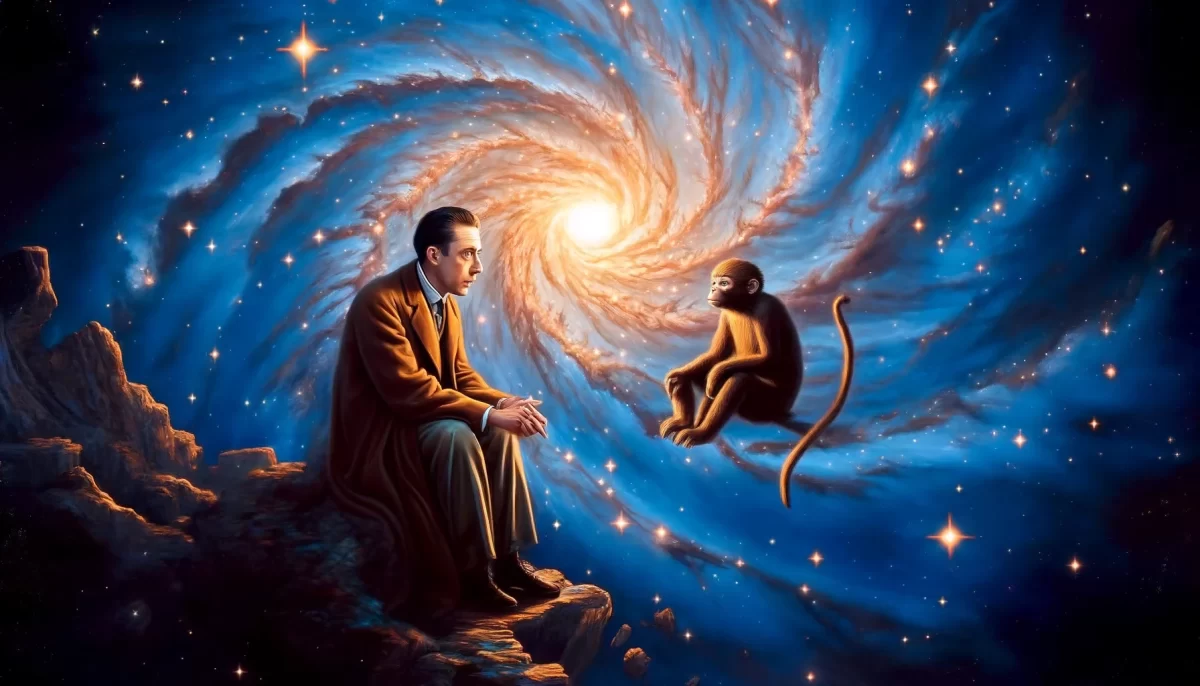


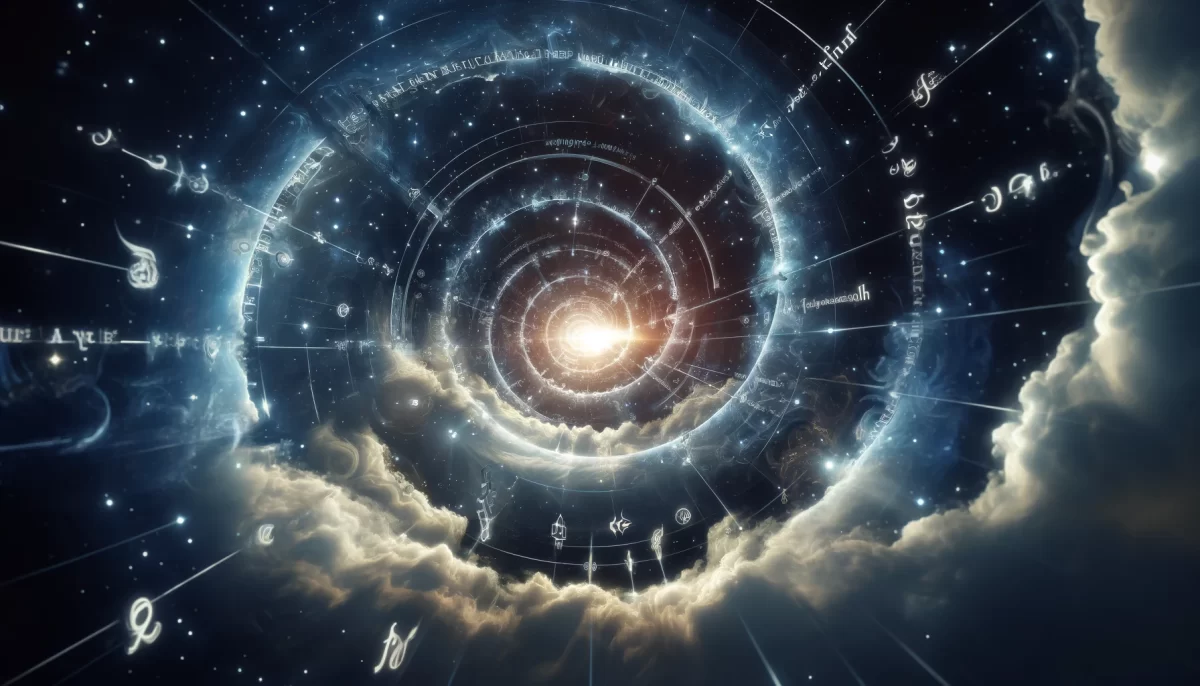







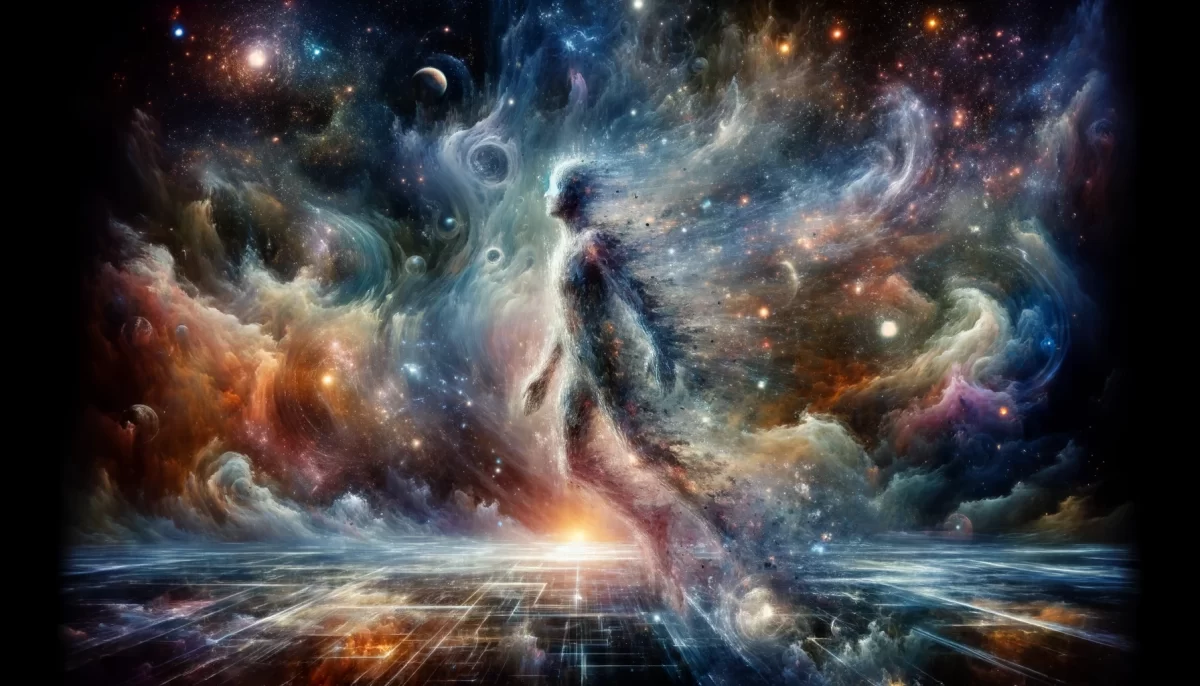
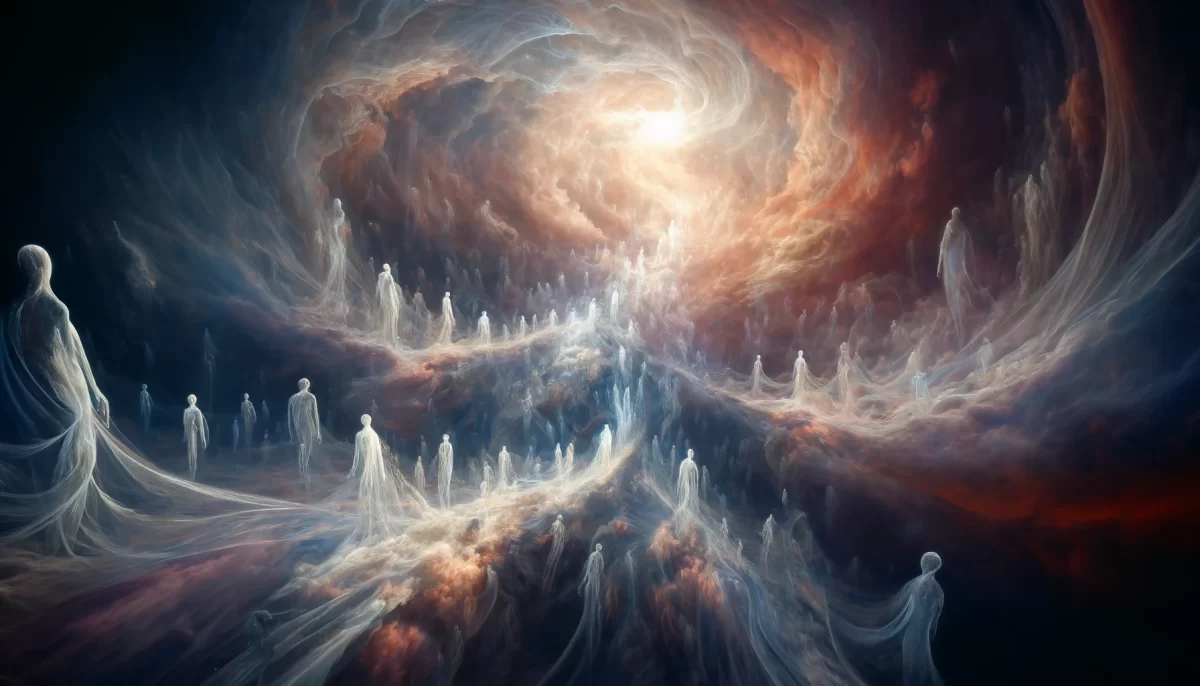
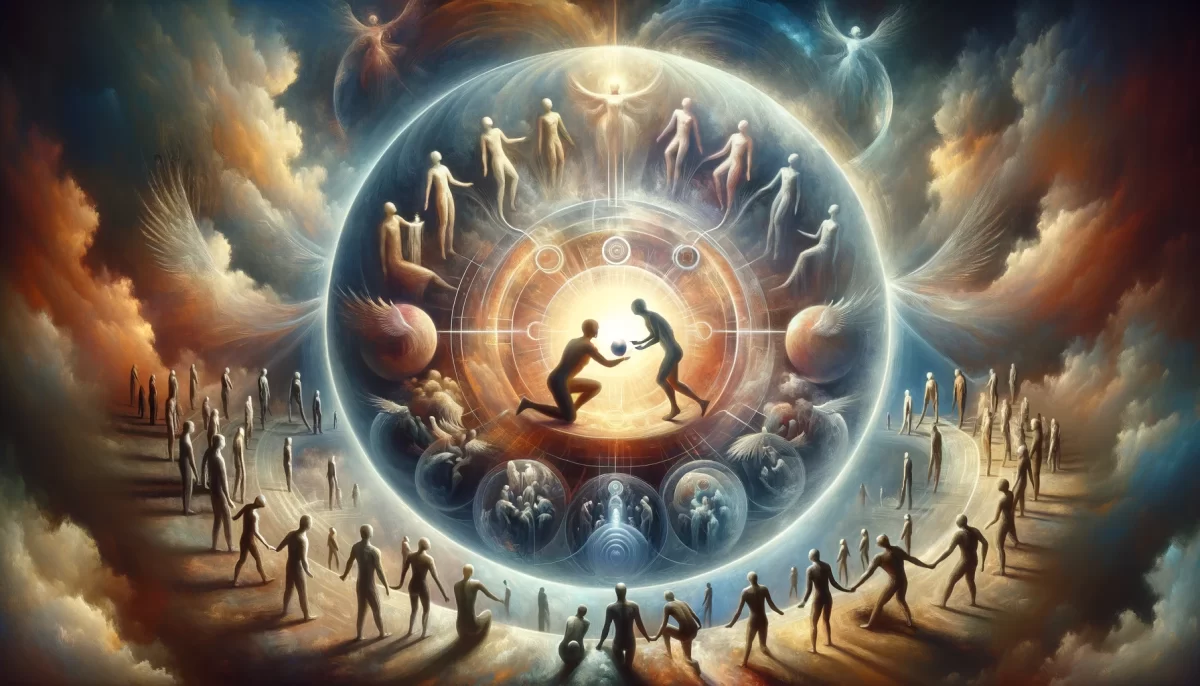

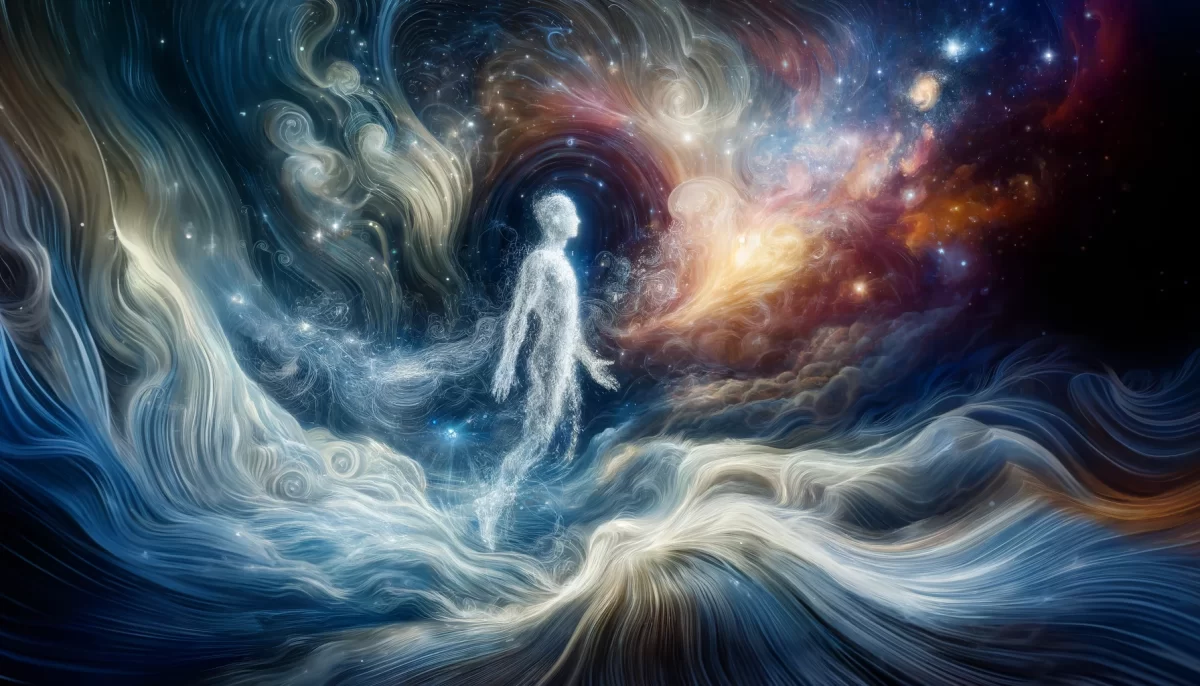
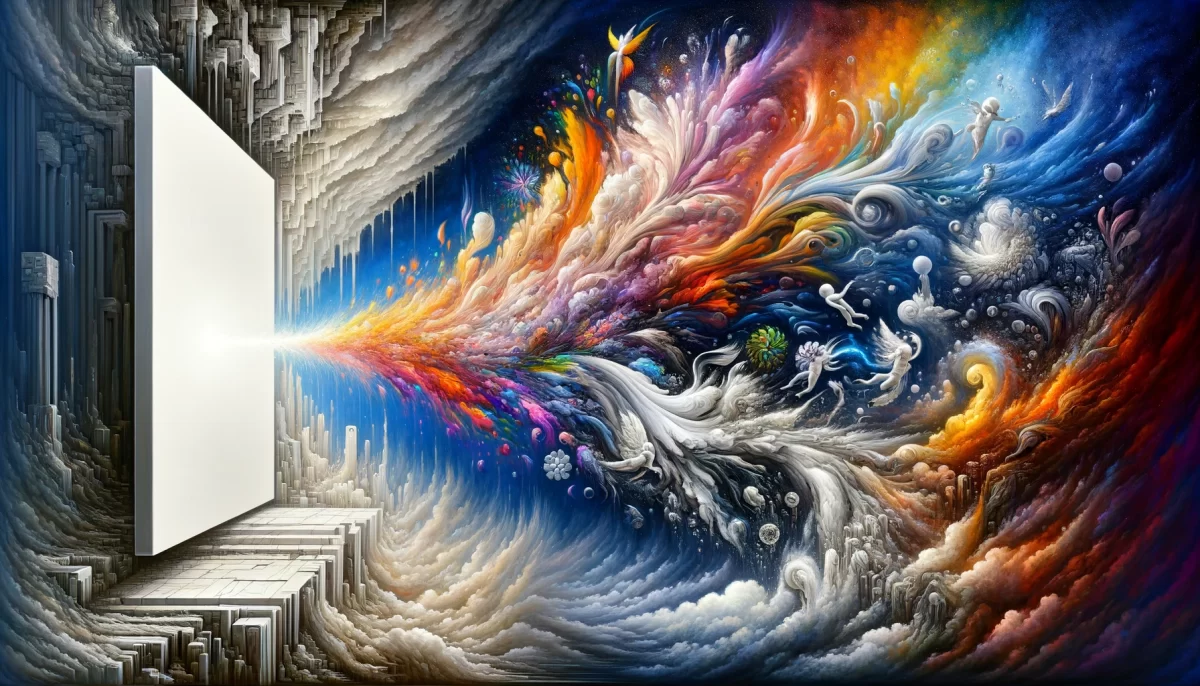


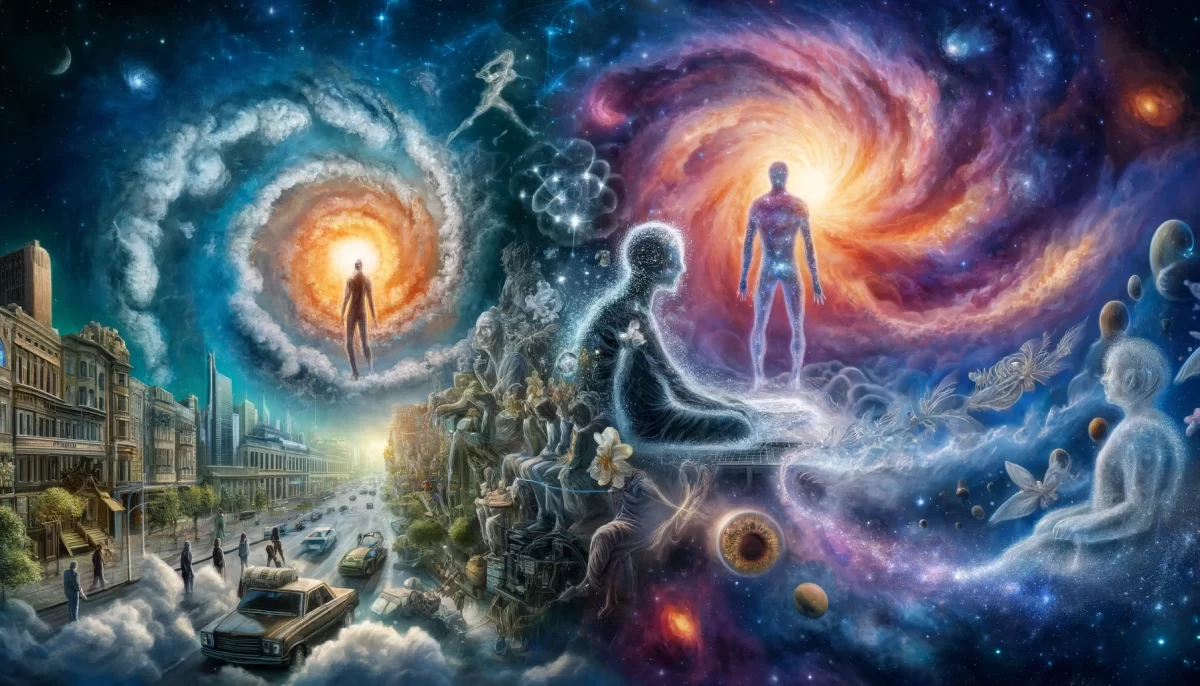

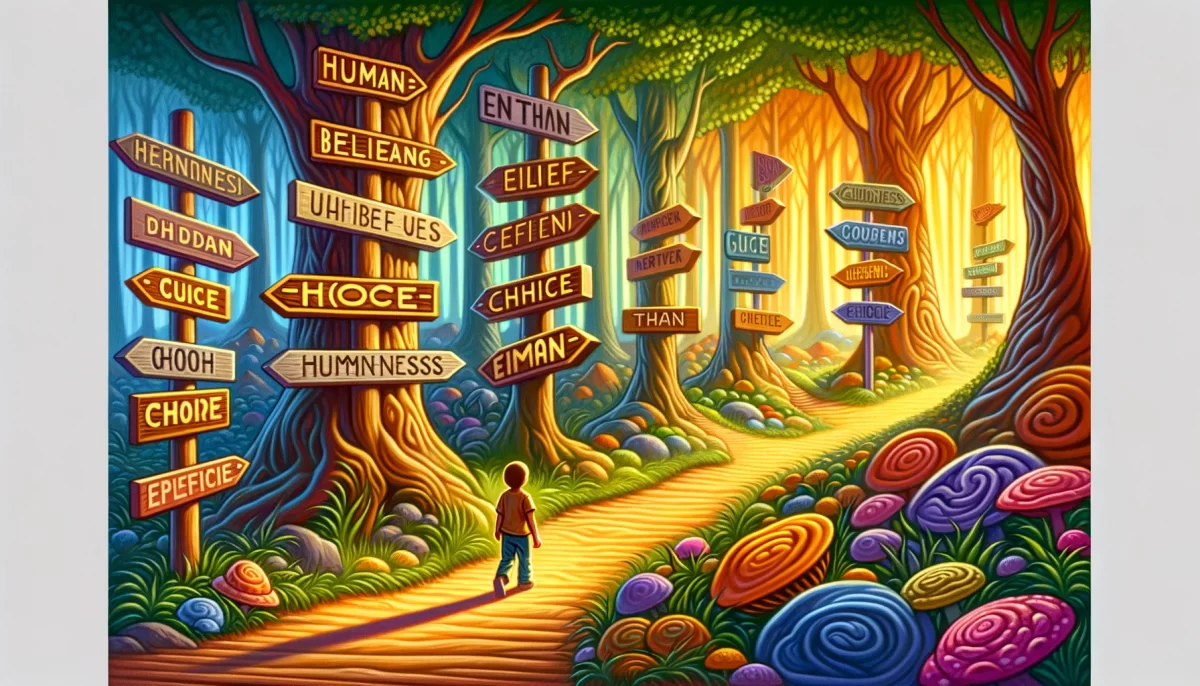
Leave a Reply